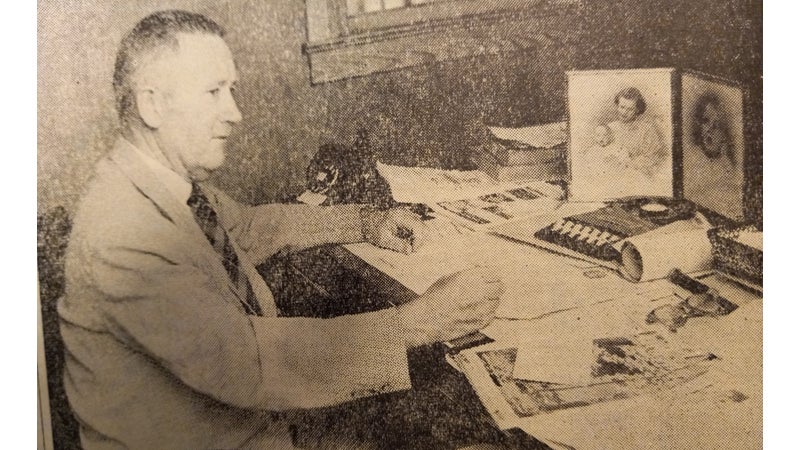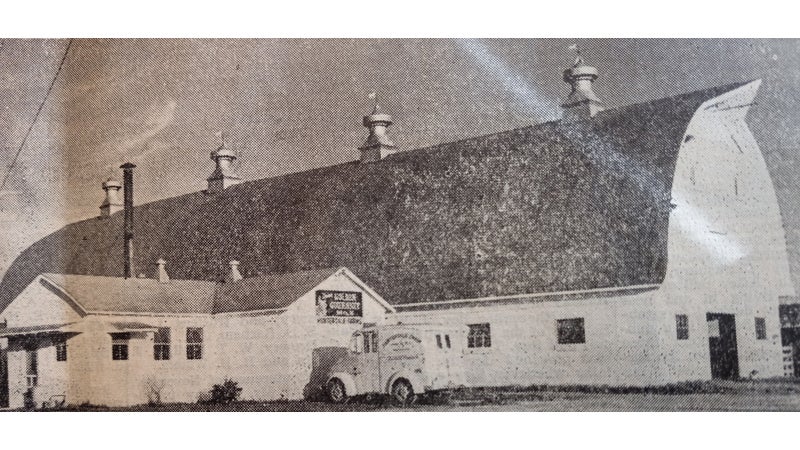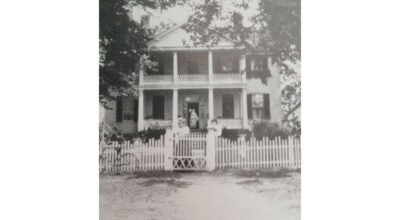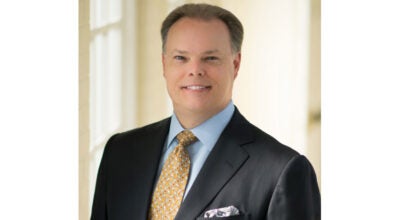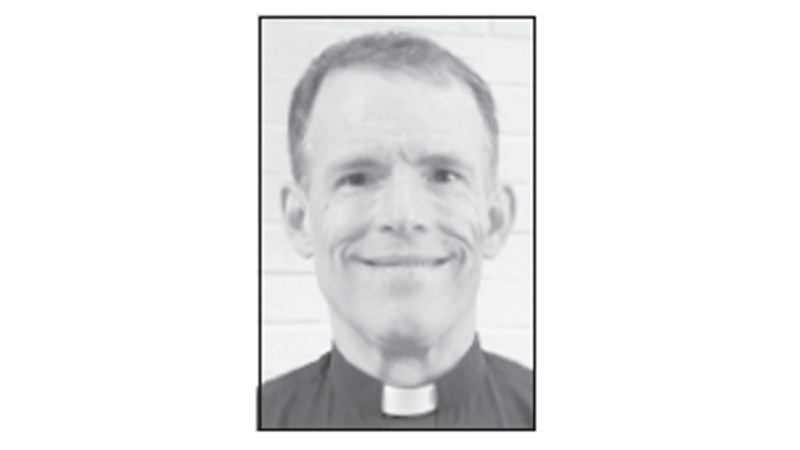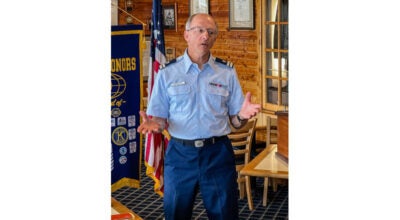William Hunter Scott: Builder of Hunterdale
Published 6:00 am Thursday, December 2, 2021
|
Getting your Trinity Audio player ready...
|
By Clyde Parker
William Hunter Scott of the Franklin community was known to his wide circle of friends simply as a hard-headed and big-hearted highway contractor who dreamed a dream – with a difference. His dream, unlike a lot of dreams, became a reality.
A strong creative impulse, seldom found in practical engineers and men who work with heavy construction equipment, prompted Hunter Scott to dream of building a town, complete with houses, churches and businesses of various kinds. It would not be just an ordinary town consisting of a group of dwellings from identical patterns but houses of individual design, with charm and a livable look. Furthermore, the houses would be reasonably priced so that young couples with good tastes and limited capital could afford to buy them and would be proud to own them.
The country was recovering from the depression, business was picking up, and people who could afford new homes were beginning to buy them. It looked, to Mr. Scott, like a good time to start making his dream come true.
So, in 1938, Hunter Scott began building Hunterdale. He started by purchasing acreage adjacent to the farm home where he spent his boyhood, near Union Christian Church (now Hunterdale Christian Church).The first house he built was a home for himself and his family – a handsome, one-story, ranch-type house which is still a showplace in Hunterdale.
Then came other houses, set well back from the road. Each house was designed differently, and each was constructed before it was sold. However, in the years immediately following World War II, he moved surplus houses from other areas and converted them into fine and compact residences.
At its onset, Hunterdale was shut off from the Courtland Highway (U.S. 58) by a wide strip of densely wooded land and some farmland. In order to improve the connection from the main highway to his new town – and to Sedley, he paved the preexisting roadway.
The cost of those homes, ranging from $6,000 to $12,000, was amazingly low, even for real estate values in the years before wartime inflation sent real estate prices and construction costs skyrocketing. The highway construction business had improved, contracts were more plentiful and Mr. Scott was making a good living from road building. He had not gone into real estate development to acquire a fortune. He was building a dream town, and Hunterdale evolved into a tangible result of that dream. And, it became a suburb of Franklin.
Hunterdale grew rapidly as word got around that Hunter Scott was offering remarkable bargains in new homes. Today, there are hundreds of attractive houses spread over hundreds of acres.Part of the old Scott farm is now included in the town site. Now, many other neighborhoods are contingent to or near the original Hunterdale.
During Hunterdale’s earlier days, the small frame office building occupied by the firm of W. H. Scott, Inc. was the heart of the town. Nearby, there was a grocery store, operated first by Sam Cutchins and, a little later, by Edgar Blythe; a barber shop, operated by Percy Bunch; a hardware and building supply store, Hunterdale Supply Co., Inc., operated by Leonard McLear and later by Freeman Harrell; a veterinary hospital, operated by Lemuel and Virginia Branch; and a bowling alley.
For many years, Harry L. Mulder Contractor (plumbing, heating, electrical), later Stanley Johnson, was a major business located in the heart of the village.
Nearby, down the Old Courtland Road, was Cypress Cove Country Club, started in 1924, and on the road from Hunterdale to Franklin was the J. P. Councill Co. plant farm which existed for many decades.
The Hunterdale Fire Department was established in 1947.
The Hunterdale Ruritan Club was organized in 1948.
Later, came Strickland’s grocery store, Duck-thru and “Station One” Restaurant. Presently, Billy Edwards has several businesses operating out of Hunterdale.
Around the corner from the offices of W. H. Scott, Inc. stood historic Union Christian Church, originally a frame structure which was later renamed Hunterdale Christian Church. A wing was added to the Church building years ago as a memorial to Mr. Scott’s parents.
Life for Hunter Scott was not always easy. Born in 1905 to Andrew J. Scott and Nellie Rebecca Turner Scott. The family also included brothers Vernard, Edward and John – and sisters Sara Lee, Margaret, Mary, Janice and Nell.
Hunter grew up on the family farm, got his early schooling at nearby Bethel School, and went to work at an age when most boys were attending high school.
In the 1920s, his accidental choice of a job – the only one that happened to be available at that time – shaped his future. As a teenager, he went to work as a “dinkey skinner” for the Allport Construction Company, which was building a section of concrete paving on Route 35, near Courtland. In those days, a “dinkey skinner” was the operator of a temporary narrow-gauge railroad (called “dinkey”) used to transport materials to work sites. Soon, he moved up to the position of master mechanic which became a springboard to employment with Allen J. Saville, Inc., a Richmond engineering firm. While in Richmond, Hunter attended night classes at John Marshall High School. With the Saville company, he rose to the position of superintendent of heavy construction.
In 1931, Mr. Scott moved back to Franklin and started his own contracting company and obtained contracts and sub-contracts with the Virginia Department of Highways – building roadways in a lot of places in Virginia. The rapid expansion of his business during the 1930s, as a result of the sharp increase in defense highway construction, building of airports and military bases, prompted Mr. Scott, in 1940, to incorporate the business and divide some of the heavy responsibilities which were then on his shoulders. In order for him to get around and keep up with his various statewide projects, he had his own aircraft and was the pilot for it.
During World War II, he was the primary contractor for the conversion of the Franklin Airport into the Franklin U. S. Naval Air Station. And in 1947, in addition to his many other statewide projects, he constructed Hunterdale Road, a concrete highway that connected Clay Street with the pre-existing Sedley Road which provided a better route to Hunterdale and Sedley.
Hunter Scott was a member of Hunterdale Christian Church, charter member of the Franklin Lions Club, and a member of Hunterdale Ruritan Club.He served terms as President of the Virginia Roadbuilders Association.
He had another interest, far removed from highway construction and home building. That was his dairy farm which was started in the mid-1940s and continued well into the 1960s.The farm on which he grew up, a stone’s throw from Hunterdale, was expanded into a 180-acre modern dairy farm which was in operation well into the 1960s, with Gordon Bridges, an experienced dairyman, in charge. Approximately sixty golden guernsey cows grazed on the plush meadows surrounding the dairy barns and produced cream-rich milk which was delivered in bottles by the Hunterdale Farms Dairy to homes in Franklin and Courtland.
The Rock Church of Hunterdale was founded in June of 1975 by pastors David and Patty Dillon.In 2015, Pastors Danny and Jill Dillon transitioned as lead pastors, succeeding the original Dillons. The Church converted the old Hunterdale Dairy Barn into its sanctuary.
Hunter Scott died in 1965. At that time, he was survived by his wife, Gertrude Whitley Scott; daughter, Hunter Dale Scott; son, William Hunter Scott, Jr.; stepson, David Lawrence, Jr.; his sisters: Sara Lee Scott Allen, Margaret Scott Joyner, Mary Scott Bridges, Janice Scott Panton and Nell Scott Makinson; and a brother Vernard Scott.
In 1996, Hunterdale was taken in as a part of the City of Franklin when it was included in annexation suit against Southampton County.
CLYDE PARKER is a retired human resources manager for the former Franklin Equipment Co. and a member of the Southampton Historical Society. His email address is magnolia101@charter.net.


